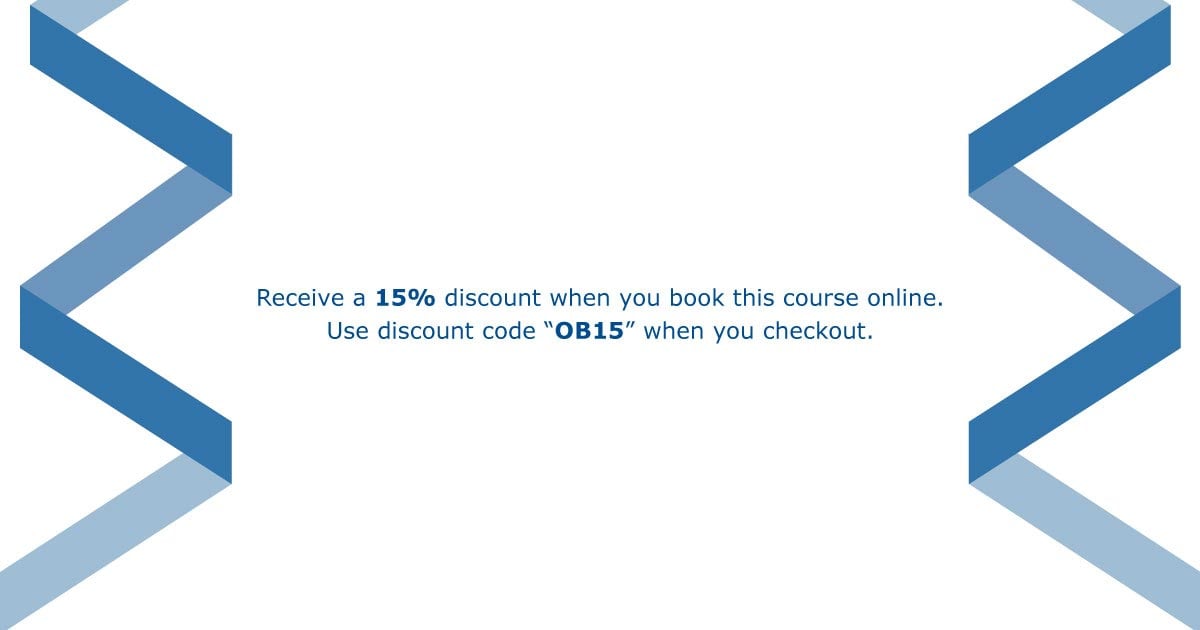Strategic Approaches to Wellbeing and Resilience Programme - CMI Level 7
A positive, high performing, and engaged workforce is the bedrock of any successful organisation. The modern leader must support wellbeing across the organisation (and within themselves) in order to find sustainable performance. This approach has come into particular focus with the pace of technological and socio-economic change, and the challenges organisations and individuals often face in order to adapt.
In response to these challenges, we have developed this pioneering, post-graduate accredited wellbeing programme. We aim to help senior leaders look beyond the tactical provision of things like mental health first aid, into a holistic and fully strategic approach to wellbeing across the organisation. We will combine psychological theory with practical approaches to enhance individual, team and organisational resilience so that we are able to perform in the face of challenge. By addressing systemic stressors and providing the mechanisms which help us to adapt to change more effectively, we can develop and maintain healthier cultures which are collaborative, high-performing and sustainable.
Course Summary
CMI Level 7 Award in Strategic Approaches to Health and Wellbeing - Optional
Duration:
3 Day
Delivery Method and Price:
Virtual Classroom:
£1,600
About Us
About the Programme
This programme has been designed for Managers, Directors and senior stakeholders.
Benefits
This course is for you if you want to…
- Develop practitioner skills in coaching to support colleagues during change, or when encountering workplace stress.
- Gain a comprehensive, evidence-based understanding of the impact of stress on people at physiological, psychological, and behavioural levels.
- Examine different organisational strategies to better understand the causes of stress at work and improve wellbeing.
- Apply cultural analysis tools to evaluate one’s own culture in regards to being a supportive and psychologically safe workplace.
- Develop an evidence based strategic plan to enhance wellbeing at the cultural and policy level
*Please note that some of the materials and objectives may be subject to change depending on discussions, activities and needs of the cohort upon reflection of delegate responses to the pre-programme questionnaires.*
On completion of this programme, participants will be able to:
- Identify opportunities for personal and professional development
- Explain how stress impacts on our physiology, emotions, thinking and behaviours
- Understand how to manage stress and be able to put together an effective vision and purpose
- Explain the psychological interrelationship between mind set, skill set, behaviours and effects
- Understand the approaches to developing and implementing effective organisational values
- Understand and apply principles of implementing values within an organisational context
- Recognise various symptoms of conflicts and how to approach them
- Explain how resilience can be developed
- Coach and mentor individuals, teams and organisation
Session 1
Managing the Impact of Stress
Key themes include:
- How stress impacts on our physiology, emotions, thinking and behaviours.
- Identifying and managing stress.
- Diagnosing opportunities for personal and professional development.
- Psychological interrelationship between mindset, skillset, behaviours and effects.
- Developing and implementing effective values and vision.
Session 2
The Challenge of Leading Change
Key themes include:
- The role of personality and how conflict can be created and resolved.
- Principles of compassionate leadership.
- Models for change and how change relates to resilience.
- Developing personal and organisational resiliency.
- Grow Model coaching as a solution to support personal and professional growth.
Session 3
The Wellbeing Strategy
Key themes include:
- Distributed leadership – the principles.
- Models of culture and its impact on mental health and wellbeing.
- Techniques for monitoring strategic implementation.
- Produce a draft plan to implement improvements to mental health and wellbeing in the workplace.
CMI Level 7 Award in Strategic Approaches to Health and Wellbeing
Following completion of the Strategic Approaches to Wellbeing and Resilience Programme, learners can opt to continue their studies by completing a CMI Level 7 Award in Strategic Approaches to Health and Wellbeing. This qualification is designed for senior leaders who wish to understand the impact of mental health and wellbeing on organisational performance.
Learners are required to complete one 3,500-4,000 word written assignment. Units to be completed include:
- 716: Strategic Approaches to Mental Health and Wellbeing
Benefits of completing the qualification include:
|
For learners:
|
For organisations:
|
Learners also receive:
- Targeted tutorials run by our CMI-qualified tutors, to help learners complete the assignment writing phase.
- Dedicated support from the Quality Assurance Team here at In Professional Development, including regular CMI learner drop-in sessions.
- Access to a wealth of CMI online learning resources through their Management Direct website.
Please take a look at our CMI FAQs to find out more about how the qualification works.

Susan Griffiths
Tutor
Susan worked for a large UK bank for over 22 years, in a variety of roles – customer facing and in back-office support functions. She worked in continuous improvement and Lean, focused on improving the customer journey, stripping out waste from end-to-end processes and making large scale efficiencies that would save time, money and make better working experiences for staff. She trained and coached Management teams within Operational Centres with skills and tools to deliver workplace improvement sessions.
Susan spent the last 10 years working as a Learning and Development Manager, focusing on identifying learning needs across a large, global business area, understanding their problems and what wasn’t working and designing and building workable learning journeys, making them engaging, simple and accessible. A big part of her role was strategic workforce planning. Building capabilities to meet the demands of the business in the future.
She is qualified with a level 5 CIPD Diploma in Management of Learning and Development, Neuro Linguistic Programming (NLP) Practitioner and currently studying her Master Certificate to be a breakthrough Coach. She has also completed her CMI level 7 training in Coaching and Mentoring.
Coaching is a big part of her service offering as she loves to help people grow and champion potential in others, especially those who are stuck in limiting thought patterns.
-min.jpg)
Caroline Bainbridge
Tutor
Caroline is a qualified and experienced psychoanalytic consultant. She takes a distinctive approach to her consulting work with groups and organisations, paying special attention to what lies beneath the surface of everyday experience at work. The emotional dynamics of work impact on teams in ways that often go unnoticed. Caroline is an expert in working sensitively to create new understanding for teams, helping to improve work relationships and to bolster productivity. She is also able to advise on change management and business development.
Caroline trained at the Tavistock and Portman NHS Trust between 2012-2014, gaining her MA Consultancy and the Organisation: Psychoanalytic Approaches. She has provided consultancy services to diverse clients including a major news magazine, a charity focused on homelessness and addiction, a theatre group, a university, a psychoanalytic governing body, and a local grassroots regeneration organisation
Caroline is a registered and experienced Analytic Network Coach, and a registered member of the Eco-Leadership Institute. She brings a careful eye and a sensitive ear to her coaching practice, focusing on your experience to help you to shape strategies, and to thrive while developing skills for the future.
Caroline has a special interest in working with young people, leaders, and aspiring writers, helping them to make strategic choices about issues linked to professional and educational development. She offers coaching packages and bespoke programmes according to your interest and need.

James Willerton
Tutor
With more than 10 years of business consulting and professional service experience, James has developed a well-rounded and practical perspective on strategic development and human capital development at all levels and cross-industries both nationally and internationally. With a focus on innovation in strategy development, James is a certified 'exceptional trainer’. He has a diverse background in business management, innovation, strategy development, organisational development, recruitment and operations.
During his role in recruitment, James applied advanced psychometric techniques and personally assessed over 1,000 candidates for client’s businesses, as well as his own. Combined with coaching, this has given him an advanced experience of dealing with the human psyche and obtaining optimal results for human capital and organisational development.
James has a very approachable manner, with valuable real-world experience as an employer and a senior consultant to a wide-range of industries and organisations.

Stuart Chambers
Tutor
Stuart has enjoyed a 25-year career in coaching, management and leadership. Stuart's passion for coaching and personal development emerged through a successful career in the health and fitness industry. Beginning as a health & fitness coach, Stuart worked through all levels, including senior leadership roles with various organisations, from small independent businesses to multi-site operators.
As well as an experienced management and leadership professional Stuart is also qualified in Positive Psychology and Wellbeing Strategy and is an NLP Master Practitioner. For the last 10 years of his career, Stuart has worked as a coach and L&D consultant for a diverse range of clients in public and private sectors. He has extensive experience creating and delivering development programmes, workshops and coaching courses for people at all levels.
Stuart is also a sports mental training coach and has worked with athletes on their cognitive skills achieving success at all levels, from juniors to world championship and international-level competitors.
Our dedicated In-House Training team can work with you to create a tailored training course that creates an optimal learning experience. Our bespoke built training programmes are designed around your needs and allow you to meet the specific requirements of your business.
Click here to view our In-House Training services.
Is this course right for you?
- Develop practitioner skills in coaching
- Gain a comprehensive, evidence-based understanding of the impact of stress on people
- Apply cultural analysis tools to evaluate one’s own culture, to be supportive and psychologically safe in the workplace
Testimonials
Megan Steven
Sitec Infrastructure Services, Head of Wayleaves
CMI 7 Strategic Wellbeing
Sam Hollis
Norfolk County Council, Pathways to Work Co-ordinator
CMI 7 Strategic Wellbeing
Catherine Day
University of Southampton, Director Health, Safety & Risk
CMI 7 Strategic Wellbeing
Jo Pertwee
International Schools Partnership, Group Head of People Operations
CMI 7 Strategic Wellbeing
Andrew Duffieldlea
International Schools Partnership, Group Health and Safety Director
CMI 7 Strategic Wellbeing

Accommodation Made Easy
On confirmation of your course booking, you'll have the option to book accommodation from the world renowned and trusted Booking.com. Book your course, book your accommodation, expand your skills. Easy as 1 2 3.
Upcoming Courses
No courses to show.
{{ event.title }} ({{ (new Date(parseInt(event.start_date))).toLocaleDateString("en-GB") }} - {{event.location_name}} {{event.learning_mode}}).
In Association With:
{{ (new Date(parseInt(event.start_date))).toLocaleDateString("en-GB") }} - {{ (new Date(parseInt(event.end_date))).toLocaleDateString("en-GB") }}
Location:
{{ event.location_name}}
Price:
£{{ event.price }} + VAT
Featured Courses
Frequently Asked Questions
If we have the availability on our course, you can book as many places as you need for your organisation. However, if you have a group of seven people or more, you may find it more cost effective to book an in-house training course. The benefits of in-house delivery go beyond cost savings; the course is tailored to your business and industry sector, making the content highly relevant, plus we’ll deliver the training at a time and date to best suit you.
Follow the link here: https://www.inpd.co.uk/frequently-asked-questions






